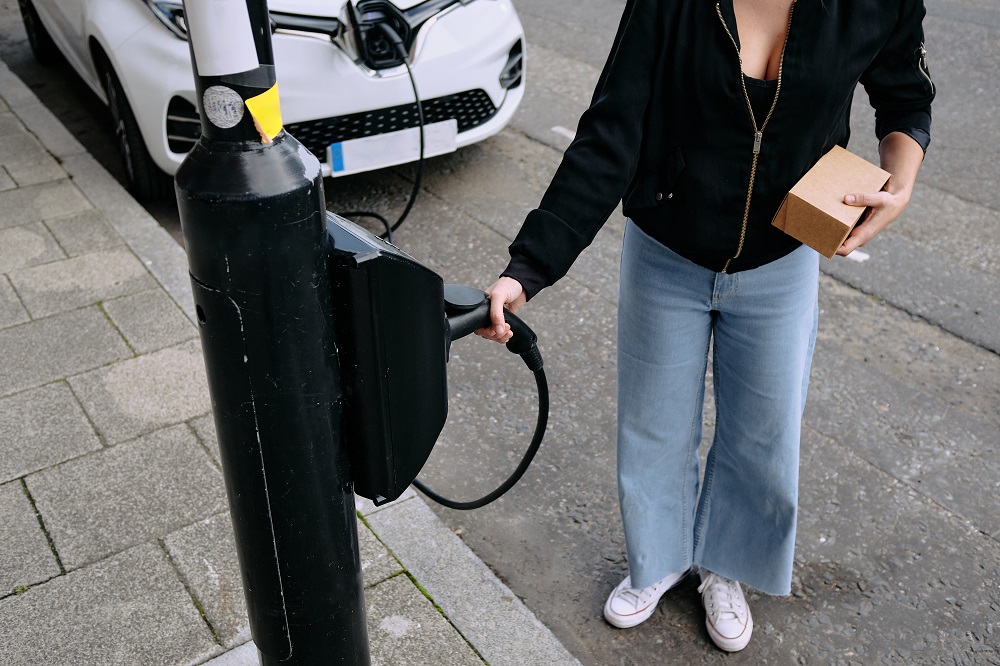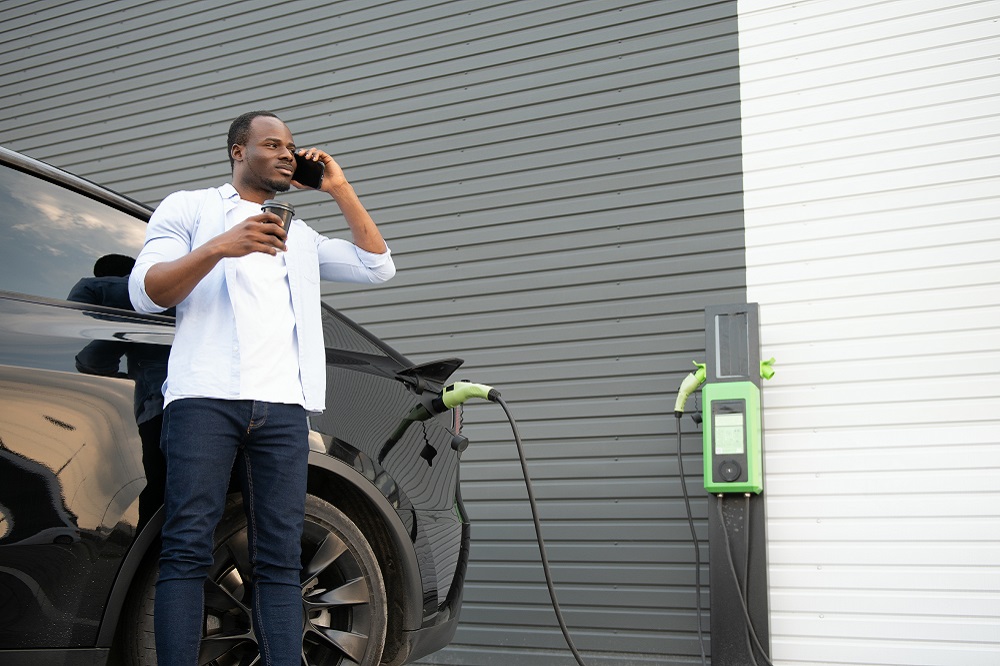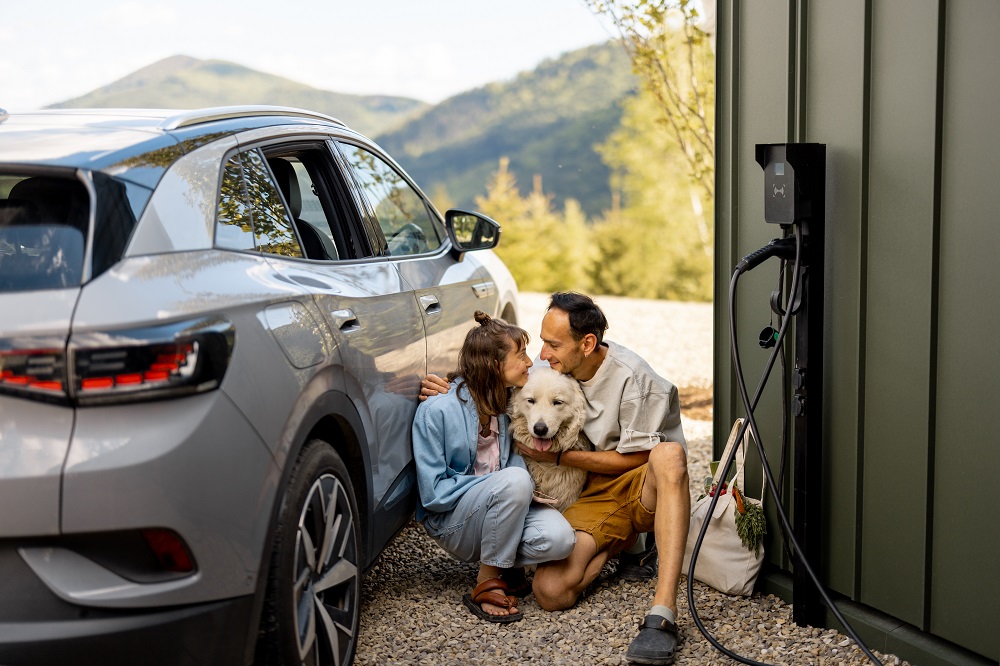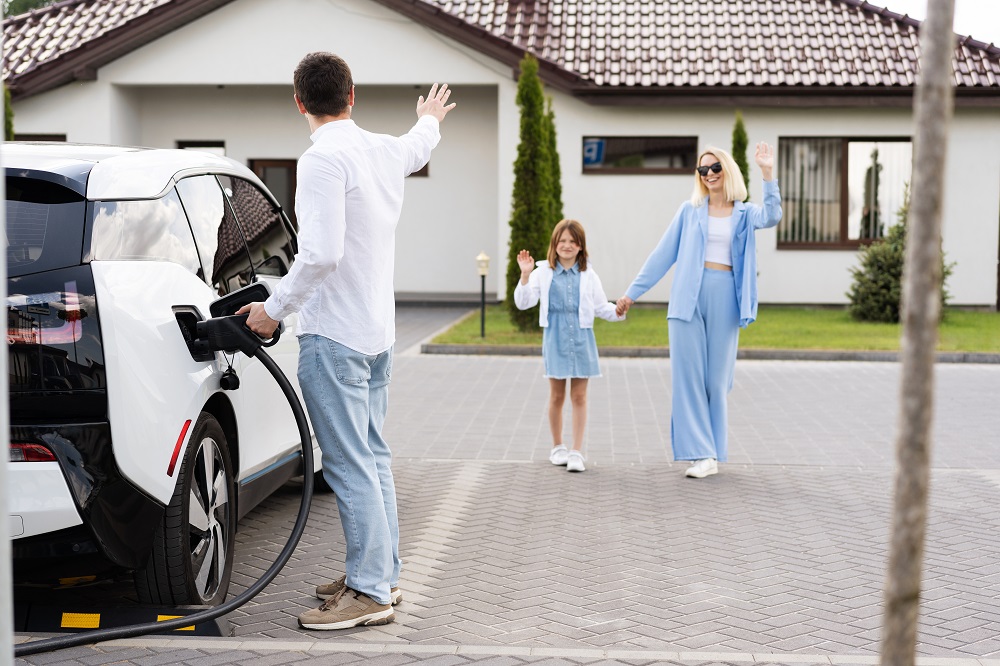Electric vehicles (EVs) are becoming increasingly popular as people look for more sustainable transportation options. If you're a homeowner considering an EV, understanding the basics of EV charging is essential. Here's a guide to help you get started.
Types of EV Chargers
- Level 1 Chargers
- Voltage: 120V (standard household outlet)
- Charging Speed: 2-5 miles of range per hour
- Use Case: Ideal for overnight charging and low daily mileage.
- Installation: No special installation required, but it’s the slowest option.
- Level 2 Chargers
- Voltage: 240V (similar to an electric dryer outlet)
- Charging Speed: 10-60 miles of range per hour
- Use Case: Suitable for daily charging and higher mileage needs.
- Installation: Requires professional installation of a 240V outlet.
- Level 3 Chargers (DC Fast Chargers)
- Voltage: 400V-900V
- Charging Speed: 60-100 miles of range in 20 minutes
- Use Case: Primarily used in commercial settings and on highways.
- Installation: Expensive and not practical for home use.
Installing a Home Charger
- Assess Your Electrical System
- Check if your home’s electrical panel can support an additional 240V circuit.
- An electrician can evaluate whether upgrades are necessary.
- Choose the Right Charger
- Decide between a plug-in model (requires a 240V outlet) or a hardwired model (permanently installed).
- Hire a Professional
- Ensure the installation meets local building codes and safety standards.
- A professional can handle permits, if required.
- Consider Smart Features
- Some chargers offer Wi-Fi connectivity, scheduling, and energy monitoring.
Costs Involved
- Level 1 Charger: Typically comes with the vehicle; no additional cost.
- Level 2 Charger: $300-$1,200 for the unit, plus $200-$2,000 for installation.
- Potential Upgrades: Electrical panel upgrades can add to the cost.
Charging Best Practices
- Maximize Off-Peak Charging
- Charge during off-peak hours to save on electricity costs.
- Many utilities offer lower rates during these times.
- Regularly Monitor Your Charging
- Use apps and charger features to track your EV’s charging status and efficiency.
- Maintain Your Charger
- Keep the charger and cables clean and dry.
- Periodically check for wear and tear.
Benefits of Home Charging
- Convenience: Charge your EV overnight and start each day with a full battery.
- Cost Savings: Home charging is typically cheaper than public charging.
- Environmental Impact: Using renewable energy for home charging further reduces your carbon footprint.

Common Questions About EV Charging
- How Long Does It Take to Charge an EV?
- Level 1 Charging: Adds about 2-5 miles of range per hour. A full charge can take up to 24 hours for larger batteries.
- Level 2 Charging: Adds 10-60 miles of range per hour. A full charge typically takes 4-10 hours.
- Level 3 Charging: Adds 60-100 miles of range in 20 minutes. Full charge times vary but are much faster than Levels 1 and 2.
- Can I Use Solar Panels to Charge My EV?
- Yes, if your home has a solar power system, you can use it to charge your EV. This can significantly reduce your electricity costs and increase your vehicle’s sustainability.
- Is It Safe to Charge an EV in the Rain?
- Modern EV chargers are designed to be weather-resistant. However, always follow the manufacturer’s guidelines and ensure your charging setup is properly installed.
- What Happens If My EV Runs Out of Charge?
- Similar to running out of gas, your EV will stop. It’s important to plan your trips and be aware of your vehicle’s range and the location of charging stations.

Future Trends in EV Charging
- Wireless Charging
- Research and development are underway for wireless charging technology, which uses electromagnetic fields to transfer energy between a pad on the ground and a receiver on the vehicle. This could simplify the charging process, making it as easy as parking your car.
- Bidirectional Charging
- This technology allows EVs to not only charge from the grid but also send electricity back to it. This can be beneficial during peak demand times or power outages, effectively turning your EV into a mobile energy storage unit.
- Faster Charging Technologies
- Advances in battery technology and charging infrastructure are continually reducing charging times. Ultra-fast chargers capable of delivering 200-350 kW are becoming more common, significantly decreasing the time needed to recharge an EV.
- Increased Public Charging Infrastructure
- Governments and private companies are investing heavily in expanding public charging networks. This includes more Level 3 fast chargers along highways and in urban areas, making long-distance travel and urban living with an EV more practical.
Additional Considerations for EV Charging
Environmental Impact
- Reduction in Greenhouse Gas Emissions
- Switching to an EV can significantly reduce your carbon footprint, especially if your home charging is powered by renewable energy sources like solar or wind.
- Energy Efficiency
- EVs are generally more energy-efficient than traditional gasoline vehicles. They convert a higher percentage of energy from the grid to power at the wheels, reducing overall energy consumption.

Government Incentives
- Federal Tax Credits
- In many countries, including the United States, there are federal tax credits available for purchasing an EV. These credits can significantly reduce the overall cost of your vehicle.
- State and Local Incentives
- Various states and municipalities offer additional incentives, such as rebates, reduced registration fees, and free or discounted parking for EVs.
- Utility Company Rebates
- Some utility companies offer rebates for installing Level 2 home chargers. Check with your local utility for available programs.
Home Charging Myths
- Myth: Home Charging is Complicated
- Reality: Installing a home charger can be straightforward, especially with the help of a licensed electrician. Many homeowners find it no more complicated than installing a new appliance.
- Myth: EVs Can’t Charge in Cold Weather
- Reality: EVs can charge in cold weather, though charging times may be slightly longer due to lower temperatures. Many EVs and chargers have built-in temperature management systems to handle cold conditions.
- Myth: All Chargers Are the Same
- Reality: Chargers vary in terms of power output, smart features, and connectivity options. It’s important to choose a charger that fits your specific needs and budget.

Community and Shared Charging
- Shared Charging Stations
- If you live in a multi-family dwelling or a community with shared parking, look for developments that offer shared EV charging stations. Some communities are increasingly installing these amenities to support residents with EVs.
- Workplace Charging
- Some employers offer EV charging stations for employees. This can be a convenient option for daily charging while you work, reducing the need for frequent home charging.
Preparing for the Future
- Battery Recycling and Disposal
- As EV batteries reach the end of their life, proper recycling and disposal are essential to minimize environmental impact. Advances in battery recycling technology are helping to recover valuable materials and reduce waste.
- Energy Storage Integration
- Future EVs and home charging systems may integrate more closely with home energy storage solutions, allowing for greater energy independence and efficiency.
- Smart Grid Integration
- Smart grids and advanced metering infrastructure will enable better integration of EVs with the overall energy system, optimizing when and how EVs are charged to balance demand and supply.
